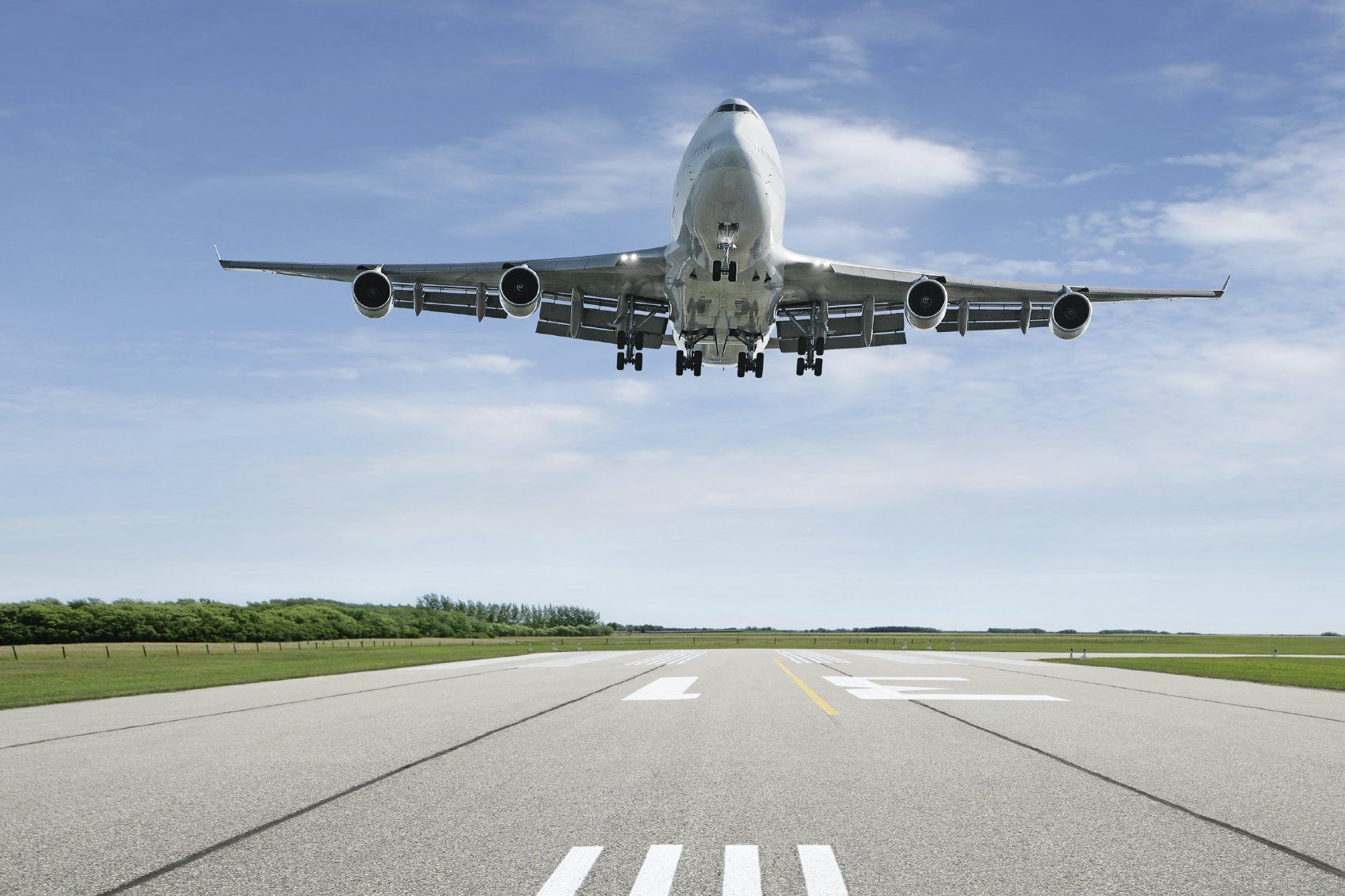Blog Layout
UV been framed!
Sarah Drury
A guide to safe sunglasses
Sunglasses can be a fantastic fashion accessory but It’s easy to focus (forgive the pun) on what’s fashionable and whether they match your general style. They can be a significant part of your identity if you wear specs all the time – so it may be very important to you to carry this through in your eyewear collection. However, fashionistas beware! What’s really important is just how much protection your sunglasses give you. No matter your age, it’s never too early or too late to start giving some serious consideration to making sure you have the correct lenses for maximum sun protection.
So how can UV rays damage your eyes?
Sunlight contains ultraviolet (UV) rays - UVA and UVB, which can be harmful to your eyes and the surrounding skin. Frequent exposure to UV rays can cause serious damage which may be irreversible — especially if you aren’t protecting your eyes enough. The good news is that you can give your eyes a better chance of staying healthier for longer by wearing a good-quality pair of sunglasses which will help you to avoid some of the following conditions:
Photokeratitis
- a sunburn like condition of the cornea, sometimes called ‘snow blindness’. Symptoms can include red, swollen eyes, although they are usually temporary and should clear up quickly.
Pterygium
- (sometimes called ‘surfers’ eye’) causing fleshy raised bumps on the whites of the eyes which can grow and cover the cornea, affecting vision.
Cataracts
– causing cloudy vision which can be made worse with long term exposure to UVA/B
Macular Degeneration
– it is thought long term exposure to sunlight may be a factor in age related macular degeneration (AMD).
Cancer
- affecting several parts of your eye and your eyelids.
8 things to consider when purchasing sunglasses
1.
Make sure the lenses offer maximum protection against UVA and UVB rays. Look for a European Standard ‘CE’ or a label with ‘UV 400’
2. Style over substance is not the way to go when it comes to sunglasses, buy the best you can, you don’t have to break the bank to get the best lenses, particularly if you don’t need a prescription.
3. Dark lenses don’t mean better protection – they’re just dark - it’s the technology in the lenses which provides the UV protection.
4. Make sure the frames fit and sit properly on the bridge of your nose. If you pull them further down your nose you create space which allows UV light to enter behind them.
5. Make sure the lenses and frames cover as much skin surrounding the eye as possible, the bigger the better, this helps prevent light ingress onto the eye itself as well as damage to eyelids. Wraparound glasses are best.
6. If you wear prescription spectacles and don’t always want to carry a separate pair of sunglasses, make sure any photochromic options (lenses change from clear to colour on exposure to sunlight) afford as much protection as good quality sunglasses.
7. UV protection and polarization are not the same – polarization alleviates glare from surfaces like water or snow and is not a replacement for UV protection.
8. Have a spare pair – spectacles and sunglasses are in the top 5 items processed in Transport for London Lost Property office!
2. Style over substance is not the way to go when it comes to sunglasses, buy the best you can, you don’t have to break the bank to get the best lenses, particularly if you don’t need a prescription.
3. Dark lenses don’t mean better protection – they’re just dark - it’s the technology in the lenses which provides the UV protection.
4. Make sure the frames fit and sit properly on the bridge of your nose. If you pull them further down your nose you create space which allows UV light to enter behind them.
5. Make sure the lenses and frames cover as much skin surrounding the eye as possible, the bigger the better, this helps prevent light ingress onto the eye itself as well as damage to eyelids. Wraparound glasses are best.
6. If you wear prescription spectacles and don’t always want to carry a separate pair of sunglasses, make sure any photochromic options (lenses change from clear to colour on exposure to sunlight) afford as much protection as good quality sunglasses.
7. UV protection and polarization are not the same – polarization alleviates glare from surfaces like water or snow and is not a replacement for UV protection.
8. Have a spare pair – spectacles and sunglasses are in the top 5 items processed in Transport for London Lost Property office!
There are plenty of reputable high street and online retailers who can tailor-make sunglasses to your specifications, and it is possible to have safe and
fashionable sunglasses – you just need to look around!
Many references in this article are attributed to Tongalp Tezel MD, dept of ophthalmology, Columbia University Vagelos College of Physicians and Surgeons.

ALL YOU'LL NEED FOR YOUR BEST TRAVEL LIFE!
Hotels • Airport parking, transfers and more
We've partnered with Fashion Eyewear, where designer glasses, sunglasses and exclusive eyewear collections are paired with the latest and best lens technology available.

by Sarah Drury
•
30 Jun, 2023
When packing for your holiday have you really considered if your sunscreen has the right protection factor for you and is appropriate for the outdoor activities you’re looking forward to? It’s worth spending some time making sure you have exactly what you need so you can enjoy your holiday to the full without fear of burning and causing skin damage. But when it comes to purchasing supermarket and branded sunscreens, it can be difficult to decide which one is best for you. Branded products aren't always better, supermarket alternatives can work just as well for you, it all depends on personal preference and your budget. Whichever you decide to purchase, the packaging will tell you if its the best option for you. What are you likely to see on the packaging and how do you know what protection a sunscreen offers? Looking carefully at the packaging can reveal alot about how much protection is offered. You are looking for three things: SPF (Sun Protection factor) – this is the number on the front of the packaging and usually ranges from 2 (very low) to 50+ (very high). People often think this is an indicator of how long you can stay out in the sun - it isn’t, it tells you how protected you are before your skin burns and this usually depends on the type of skin you have. If you have fair skin, you need a higher protection factor. But this isn’t the whole story, you need to look at the UVA and UVB rating as well. UVA and UVB - what does it mean? UVA and UVB are two types of ultraviolet (UV) radiation from the sun. While both can cause skin damage, they differ in their intensity and the type of damage they cause. UVA rays are more intense, penetrate deeper into the skin, and can cause wrinkles, age spots, other signs of premature aging and skin cancer. UVB rays are less intense but can still cause sunburn, skin cancer, and other forms of skin damage. It is important to understand the difference between UVA and UVB protection so that you can protect your skin from both types of radiation when spending time outdoors. Ideally, using creams with a high protection for both UVA and UVB is the best option. Star ratings are visible on the packaging for UVA and occasionally UVB. The ratings are often displayed on the back of the packaging as well as the front so take a close look. If you can only see a UVA protection symbol it doesn’t mean there is no UVB protection - the higher the UVA protection, the higher the UVB protection. The following are examples of symbols you should be looking for on UK and EU packaging:

by Sarah Drury
•
20 Jan, 2023
Holidays are about taking your mind off all your worries and just relaxing in the way you do it best. For me, when I'm not sightseeing, there's no better way to do just that, by immersing myself in the world of fiction or someone else's fact. In the past, my suitcase would be weighed down with books but these days my compact Kindle allows me to max out on my holiday wardrobe instead. I have as many as 10 new books downloaded at any one time, switching between titles depending on my mood. I usually love a good thriller, the twists and turns distracting me from my everyday world whilst keeping me on the edge of my sun-bed! Its definitely worth doing some holiday reading research before you go away. Making sure you get those paperbacks in time or, in my case, not falling foul of being unable to download them onto an e-reader should wifi reception be poor or non existent, is imperative. Take a look at these recommended reads, a variety of authors and genres that will take you to another world.

by Sarah Drury
•
05 Jan, 2023
The convenience of having a bank account that includes travel insurance can be an attractive offer, especially if you’re thinking about taking several trips a year. Banks will often cover your worldwide travel for a monthly fee, or it may be offered as an incentive when you open an account. This type of cover can certainly provide peace of mind and you don’t have to worry about organising insurance for each trip. However, being human, we often neglect to read the small print, which could be a costly mistake if you become ill abroad and need treatment.

by Sarah Drury
•
02 Dec, 2022
Have you ever wondered what it would be like to take a holiday on your own? Perhaps you’ve always wanted to go somewhere but not had the opportunity before. Maybe your usual travel partner isn’t interested in visiting that destination on your bucket list. If you’ve never ventured out on your own before it can be a daunting prospect, especially if you’re thinking of an overseas trip.

by Sarah Drury
•
07 Nov, 2022
We all like to dream about feeling the comforting warmth of the sun on our skin and the soft sand between our toes. For people with chronic illness or physical disabilities it could be therapeutic and help with their condition. It also seem like a bit of a pipe dream for anyone who relies on disability aids to move around and cope with everyday activities. This doesn’t have to be the case, there are many disability aids on the market designed to make travel possible. Airlines and cruise operators are usually happy to help customers travelling with mobility aid equipment. They'll each have individual guidelines about how they will do this. I hope the following information helps you to get on board, relax and enjoy your holiday!

by websitebuilder
•
30 Sept, 2022
If you are likely to be travelling more than a couple of times throughout the year, then an annual policy will probably be better value. Remember your travel insurance doesn't just cover your holidays abroad but also in the UK, so if you have to cancel, you are covered. With a Single trip policy you are only covered for a 'one off' trip, up to 100 days (conditions apply) . With an annual policy – all your trips are covered in one go, for the entire year. Great if you're a keen traveller as it saves you the hassle of setting up new cover each time you go abroad, as well as saving you money. Don't forget to use our discount code: SM20 to get 20% OFF the cost of your Singe-Trip or Annual Multi-Trip cover!

by websitebuilder
•
30 Sept, 2022
Travelling with Essential Medical Equipment Destination decided, and for most people the planning for a short trip or a longer holiday is quite straightforward. But what if you also need to factor in carrying essential medical equipment on your travels? If your medical condition means you rely on medical equipment for your everyday comfort and survival, navigating the rules and regulations for travelling with these items can be confusing and complex. You may have sleep apnoea and require a CPAP machine, a respiratory condition for which supplemental oxygen is vital or a renal condition which means carrying a portable dialysis machine. The CAA is only able to provide specific guidance on essential medications, essential nutritional items and CPAP machines, so it’s reasonably straightforward if these are the items you need to carry But it is advisable to check with your airline to confirm you will be taking any of these items on board. For more information visit: UKCAA Portable ventilators, oxygen, oxygen concentrators and dialysis machines are very different. Oxygen is combustible, ventilators and dialysis machines require a power source and often contain a lithium- ion battery for which there are various regulations about transporting. While the medical industry has come along in leaps and bounds in making medical devices compact and transportable, there is limited space on a flight and these items need to be positioned properly when using during a flight so provision needs to be made for this. Flying with Oxygen This is perhaps the most complex of therapies to accommodate when travelling. The CAA doesn’t give much advice about carrying medical oxygen other than a cylinder must fit underneath a seat and to contact your chosen airline well in advance of travel. However, your oxygen provider will be able to assist you with options and advice on how your needs can be met on a plane and a cruise. There is likely to be additional cost if they are supplying you with equipment to travel outside the UK. The British Lung Foundation can provide you with some advice. Fitness to Fly - oxygen Due to air pressures in a plane, you may need to be assessed for your suitability to travel if you have a respiratory condition which requires oxygen in certain atmospheric conditions, even if you don’t require it on a regular basis. A Hypoxic Challenge Test (HCT) can be requested by your consultant, nurse, and GP, it is performed in a hospital lung function laboratory and simulates a cabin pressure using 15% oxygen. Fitness to fly - general A completed Fitness to Fly certificate often known as a Medical Information Form (MEDIF) will be required by all airlines in the following circumstances: You’ve had a recent Illness, hospitalisation, injury or surgery You have an existing unstable medical condition You need to use medical equipment or therapeutic oxygen on board MEDIF forms can be obtained from your airline or GP. There will be a cost for this to be completed. Cruising with Medical Equipment Cruise operators also have rules about carrying medical equipment and oxygen so it’s important you check these well in advance of your holiday. If you have any equipment that requires a power source to operate/re-charge, you need to check if their power supply is suitable to run your equipment effectively. There are companies that specialise in supplying medical equipment for cruises such as Omega Advanced Aeromedical . Travel Insurance Anyone travelling with a medical condition should have appropriate travel insurance cover in place. Any medical care required overseas could be potentially very expensive. So make sure you’ve declared all your pre-existing medical conditions when you buy your travel insurance. Be organised and enjoy your holiday! The key to an enjoyable, relaxing holiday when travelling with medical equipment is to be organised. Yes, you will have extra things to consider and plan but it will be worth it, and help is out there to make it all possible.
More great travel deals every week!
We are always searching for more holiday and travel deals for you! Sign up to our newsletter or join us on Facebook to hear about our latest offers from saveonmy.com


